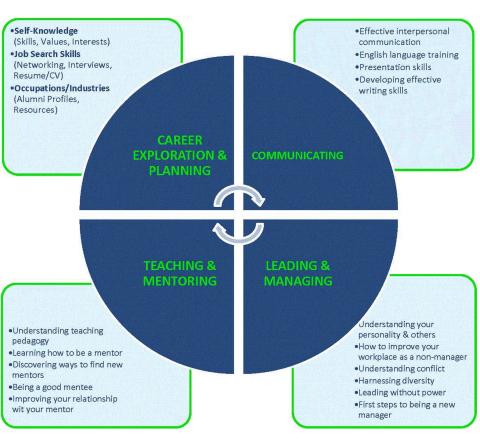

Thorough preparation is essential in advance of any industry job interview to ensure that you perform at the highest level possible. Making sure that your resume is in order, that you have accessed available sources to obtain vital information both on the company and the person who will be conducting the interview and practicing your responses to anticipated questions are all key to completing a successful interview. One additional step that is just as important, but often times overlooked is preparing a set of questions to ask of the interviewers to help you determine whether t
Pondering a career in industry? Then you need to be aware that the industry job offer may contain elements not part of offers in academia, government or non-profits; industry jobs often include a profit sharing plan.
Industry profit sharing takes two basic forms; dividends, a cash payment made to employees and share-holders based upon the performance of the company, usually on an annual basis, and equity, the actual ownership of shares of the company. Equity in a company is granted by one of the following methods:
Post written by Sharon Milgram, Director of The Office of Intramural Training & Education. Science careers, at or away from the bench, require us to be life-long learners. To be successful, we are always learning – and teaching – new skills. While many of us enjoy this, it also comes with frustrations and challenges. In considering how we learn, I was struck by the excellent and concise explanation of the stages we typically go through as we learn and develop new skills.
Regardless of whether you are planning on applying to Graduate School or Professional school, a successful application requires preparation. If you remember one word from this post, remember “Early.” Take your exams (GRE, MCAT, LSAT, GMAT, etc.) early. Get your letters of recommendation lined up early. Write your personal statement early. Have someone look over your materials early. Submit your applications early. When you get an interview, show up early.
For those applying to graduate school:
Do you need to find a job in a geographically limited area far from your current location? Maybe your significant other just found a dream job, or maybe you just always wanted to live in Seattle, WA – whatever the reason, a remote and geographically limited job search poses a distinct set of challenges that require some strategizing to overcome. Here are a few thoughts that may help from a person who recently was searching for a job in Dallas, TX, while living in Bethesda, MD. These tips are useful in any job search, but particularly for conducting a remote search.
We had a workshop on interviewing this week, here is a wrap-up of what was said, and more information to make your interviews a success. If you want to watch the videocast, it is archived here. We had three speakers to highlight multiple aspects of the hiring process; a hiring manager, a human resources person, and a recruiter. The advice here is mostly for non-faculty positions (although we have information on the faculty job hunt at www.training.nih.gov)
You found an awesome job posting or graduate program, crafted the perfect curriculum vitae, and created a cover letter capable of convincing the staunchest of holdouts that you are a vital addition to their team. The only problem is you remembered to attach your resume after pressing send on your cover letter e-mail. Forgotten attachments happen to everyone, but the job application process is where you are supposed to distinguish yourself as a better candidate than everyone else. So – now what?
Post written by a guest blogger Yewon Cheon, former postdoc in the National Institute of Aging and current Program Coordinator in OITE.
“I love interviewing people!”
This post was written by guest blogger Pat Sokolove, PhD, Deputy Director, OITE; AAAS Policy Fellow, 2003 – 2005; Health, Education, & Human Services Selection Panel Member, 2006; Chair, 2008 – 2009.
The online application system for AAAS Science & Technology Policy Fellowships is now open; the deadline is 5:00 pm (EST), December 5, 2013. The AAAS materials are exceptionally clear, but potential applicants always have questions. Here are some of the questions I hear most often.

